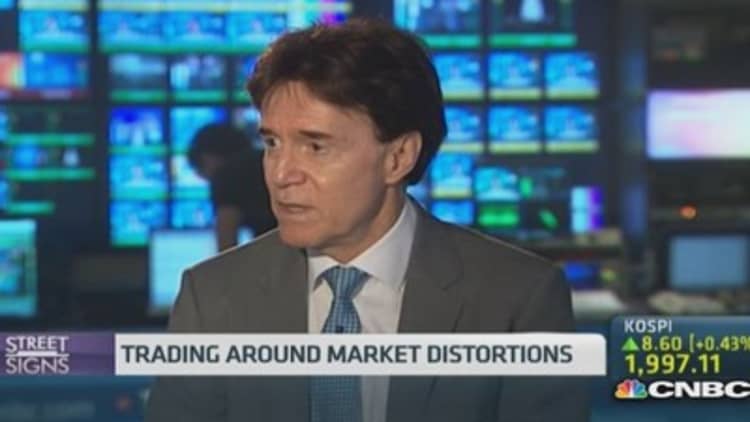Following concerns over ultra-easy monetary policy and its impact on the global economy, the Bank for International Settlements (BIS) has highlighted a further problem on the horizon: rising interest rates.
This shift towards tighter policy has the potential to create a "vicious circle", the Basel-based organization of central banks warned in its annual report on Sunday.
"Regardless of central banks' communication efforts, the exit is unlikely to be smooth," said BIS, one of the few organizations to foresee the global financial crisis of 2008.
It warned that efforts to prepare markets by being open about policy intentions could "inadvertently result in participants taking more assurance than the central bank wishes to convey."
"This can encourage further risk-taking, sowing the seeds of an even sharper reaction. Moreover, even if the central bank becomes aware of the forces at work, it may be boxed in, for fear of precipitating exactly the sharp adjustment it is seeking to avoid," BIS said. "A vicious circle can develop."
Read MoreDraghi breaks newground with negative interest rate
Since the onset of the global financial crisis in 2008, central banks have slashed their main refinancing interest rates to close to zero – a drastic monetary policy move designed to stimulate borrowing and cash flow.
The U.S. Federal Reserve, Bank of England and Bank of Japan have also embarked on quantitative easing (QE) programs, which saw them buy government bonds in large quantities. This helped push government bond yields to record lows, and allowed governments to borrow at more favorable rates.
The Fed is currently in the process of reducing this extra liquidity, and investors are anticipating that interest rates could start to normalize in the medium term. Last week, the central bank continued to reduce its monthly bond-buying program from $45 billion to $35 billion a month, and St. Louis Fed President James Bullard suggested interest rates could rise sooner than expected on Thursday.

The Bank of England, meanwhile, has led markets on a merry dance, with analysts confused as to when the main benchmark rate will start to rise. The central bank's mixed messages even saw it compared to an "unreliable boyfriend" by a U.K. policymaker last week.
But despite a slightly confusing picture, BIS said things could get a lot worse if central banks delay their return to more normal monetary policies.
"In contrast to that is often argued, central banks need to pay special attention to the risks of exiting too late and too gradually," it said in the report.
"As past experience indicates, huge financial and political economy pressures will be pushing to delay and stretch out the exit. The benefits of unusually easy monetary policies may appear quite tangible, especially if judged by the response of financial markets; the costs, unfortunately, will become apparent only over time and with hindsight. This has happened often enough in the past."
Read MoreBank of England's Carney strikes more dovish tone
BIS has warned in the past about the effects of ultra-loose policy, arguing that it has "retarded" economies. In its report, it separates countries that were severely affected by the financial crash from those that managed to sustain continued growth, offering both a recipe for success.
It said badly affected economies should be repairing banks' balance sheets and implementing targeted structural reforms. Whereas better performing economies should be seeking ways to curb the boom and strengthen defenses against a financial bust, BIS added.
"After rates have stayed so low for so long, the room for maneuver has narrowed," it said. "Particularly for countries in the late stages of financial booms, the trade-off is now between the risk of bringing forward the downward leg of the cycle and that of suffering a bigger bust later on."
Follow us on Twitter: @CNBCWorld


